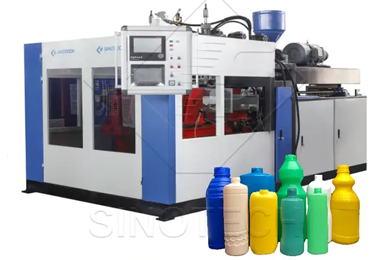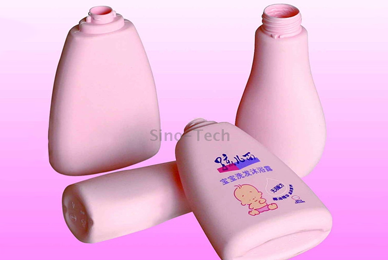
In today’s dynamic market, the demand for personal care products packaging is experiencing substantial growth. Among these products, shampoo bottles represent a significant segment due to increasing consumer awareness of hygiene and grooming. Packaging is no longer just a container; it must combine functionality, durability, and aesthetics while aligning with sustainability trends.
Blow molding technology has emerged as a core process in manufacturing shampoo bottles. Its ability to produce high-quality, lightweight, and cost-effective packaging at scale makes it indispensable for personal care product manufacturers.
1. Understanding Shampoo Bottle Requirements
Before diving into the manufacturing process, it is critical to understand the specific requirements shampoo bottles must meet to succeed in the competitive personal care market.
Material Selection: HDPE, PET, and Others
The choice of plastic material significantly influences the bottle’s performance, appearance, and sustainability. The two most common materials used are High-Density Polyethylene (HDPE) and Polyethylene Terephthalate (PET).
HDPE: Known for its excellent chemical resistance and toughness, HDPE is widely used for shampoo bottles that require durability and resistance to impact. It is opaque or translucent and offers a matte finish, making it suitable for functional and everyday use bottles.
PET: PET bottles are favored for their exceptional clarity, gloss, and ability to showcase the shampoo’s color and texture. PET is often used for premium shampoo products where aesthetics are vital. Additionally, PET is recyclable and lightweight, fitting the sustainability trends in packaging.
Manufacturers may also use multilayer materials or additives to improve barrier properties, UV protection, or rigidity.
Appearance Consistency and Wall Thickness
A shampoo bottle must have a consistent and attractive appearance to stand out on retail shelves. This involves smooth surfaces, uniform color distribution, and an even wall thickness. Consistent wall thickness ensures structural integrity, preventing deformation, leaks, or premature wear during handling and transportation.
Precision in manufacturing guarantees that each bottle meets the design specifications, enhancing consumer trust and brand reliability.
Safety and Functional Requirements
Shampoo bottles need to safely contain liquids without leaks or contamination. The neck finish must be compatible with caps, pumps, or dispensing mechanisms. This is essential not only for product usability but also for regulatory compliance related to child safety and tamper-evident packaging.
2. Blow Molding Process Overview
Blow molding is the most effective and widely used manufacturing method for shampoo bottles due to its efficiency and ability to produce complex hollow shapes. Two major blow molding techniques dominate the market: Extrusion Blow Molding (EBM) and Injection Stretch Blow Molding (ISBM).
Extrusion Blow Molding (EBM)
In extrusion blow molding, plastic resin is melted and extruded into a hollow tube called a parison. This parison is captured inside a mold, and compressed air is blown into it, expanding the plastic to take the shape of the mold cavity.
EBM is popular for HDPE shampoo bottles due to its flexibility in handling various shapes and sizes. The process allows for quick mold changes and is cost-effective for medium to large batch production.
Injection Stretch Blow Molding (ISBM)
Injection stretch blow molding starts with injection molding a plastic preform, which looks like a test tube with a threaded neck. The preform is then reheated, mechanically stretched, and blown into a mold cavity to form the final bottle.
ISBM is commonly used for PET bottles, providing excellent clarity, improved strength, and reduced material usage. The stretching orients the polymer molecules, which enhances mechanical properties and barrier performance—important for premium shampoo products.
Importance of Mold Precision and Automation
The mold’s precision determines the final product’s surface quality, dimensional accuracy, and wall thickness uniformity. High-precision molds minimize defects such as flashing, uneven surfaces, or inconsistent thickness.
Modern blow molding machines incorporate advanced automation controls that monitor and regulate key parameters—temperature, pressure, blow timing, and cycle speed. This automation ensures stable production processes, reduces human error, and lowers waste rates.

3. Advantages of Using Blow Molding Machines
Blow molding machines offer numerous advantages that make them ideal for shampoo bottle production.
High Efficiency and Low Material Waste
Blow molding allows high-speed production with minimal downtime. Machines can produce hundreds or thousands of bottles per hour, meeting the fast-paced demands of the personal care market.
Moreover, blow molding uses precise control of material distribution, significantly reducing waste compared to other forming methods. This efficient use of plastic not only lowers costs but also supports environmental sustainability efforts.
Consistent Quality Suitable for Mass Production
Thanks to precise process control and automation, blow molding machines deliver bottles with consistent wall thickness, appearance, and dimensional accuracy. Such uniformity is crucial for brand integrity, packaging performance, and consumer satisfaction.
This consistency also enables manufacturers to scale production up or down easily, meeting seasonal demand changes or customized order sizes without compromising quality.
4. SINOTECH’s Solutions for Personal Care Packaging
SINOTECH Machinery Co., Ltd. is a leading manufacturer of blow molding machines with extensive experience in the personal care packaging industry. Their equipment integrates innovation, efficiency, and flexibility to meet the evolving needs of shampoo bottle producers.
Customized Blow Molding Equipment
SINOTECH offers tailored blow molding solutions that accommodate a wide range of shampoo bottle designs—from simple shapes to complex ergonomic styles. Their machines support various materials including HDPE, PET, and multilayer composites, ensuring versatility in production.
Automatic Mold Change and Intelligent Control Systems
To maximize uptime and flexibility, SINOTECH machines feature automatic mold change systems. This technology drastically reduces manual intervention and transition time between different bottle models.
Intelligent control systems continuously monitor production parameters, adjusting in real-time to maintain optimal conditions. This ensures consistent bottle quality, reduces rejects, and improves overall efficiency.
Energy Efficiency and Eco-Friendly Design
SINOTECH prioritizes sustainable manufacturing. Their machines utilize energy-saving components, optimized heating systems, and smart power management to reduce electricity consumption. This not only lowers operational costs but also supports manufacturers’ environmental commitments.
Conclusion
Blow molding technology is essential for manufacturing shampoo bottles that combine quality, efficiency, and attractive design. By utilizing advanced materials, precise molding methods, and automated blow molding machines, manufacturers can meet growing consumer demands while controlling costs and supporting sustainability goals.
SINOTECH Machinery Co., Ltd. offers state-of-the-art blow molding solutions tailored for personal care packaging. Their custom-designed machines feature intelligent controls and energy-saving innovations, helping producers improve productivity and stay competitive in a fast-evolving market.
To explore detailed equipment specifications, discover customized solutions, or request a competitive quote, we encourage you to visit www.sinotechmachine.com. Connect with SINOTECH and take the next step toward optimizing your shampoo bottle production with reliable, high-performance blow molding technology.

















